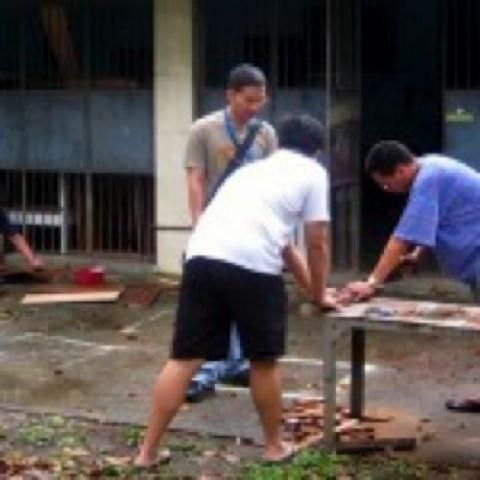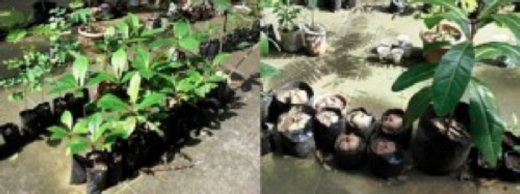Jesuit scholastics in the Loyola House of Studies located in the Ateneo de Manila University campus have embarked on a series of initiatives to raise awareness about care for the environment in community lifestyle and house management.
The initiative began with an informal group of junior philosophers with a common interest in the environment, but the projects were few and far between. The current group is made up mostly of theologians and two regents were very active last year, when there was renewed interest in environmental issues. This renewed initiative in LHS was prompted by General Congregation 35 and further fuelled by “Healing a Broken World,” which serves as a guiding document for activities focused on the environment.

As part of their solid waste management efforts, they are undertaking a small-scale composting activity. They are now doing “backyard” composting, while they look for a site that can be used for the long-term.
The scholastics are also engaged in “greening” activities. They are recovering and rehabilitating seedlings that were planted during the last school year. Due to summer activities and duties, some of the seedlings perished, but new seedlings are already germinating. They have also received their rector’s approval to do a second round of tree planting in San Juan, Batangas, and they are implementing small-scale projects such as seed collection, seed banking, germination, and propagation.
In addition, they recently published the first issue of “Green Jesuits”, an online magazine in which they share their initiatives and experiences.
Environment initiatives are not a mainstream focus of the Philippine Province, and these initiatives of the LHS scholastics demonstrate a true love and concern for the environment, and a commitment to this new dimension of the Jesuit mission.







